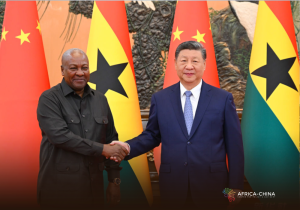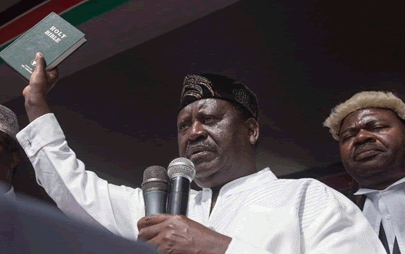
Thirty years after the landmark Beijing Declaration and Platform for Action, the world
Thirty years after the landmark Beijing Declaration and Platform for Action, the world once again turned its gaze to Beijing as leaders gathered for the 2025 Global Leaders’ Meeting on Women. The moment was not merely ceremonial—it was a profound reflection on how far nations have come, and how much further they must go to achieve gender equality.

Two voices stood out at this gathering: President Xi Jinping, articulating China’s global vision of women’s empowerment within the framework of inclusive modernisation, and President John Dramani Mahama of Ghana, presenting Africa’s pragmatic approach to gender-responsive governance.
Together, their messages captured a shifting paradigm—one where South–South cooperation is redefining the narrative of gender leadership. This article explores how the “Beijing–Accra axis” symbolises a renewed commitment to global equity, solidarity, and shared progress for women and girls worldwide.
The Beijing Moment: China’s Vision for Global Women’s Empowerment
In his keynote address at the Global Leaders’ Meeting on Women in Beijing, President Xi Jinping framed gender equality as a cornerstone of both modernisation and global governance reform. Speaking under the theme “Carrying Forward the Spirit of the Beijing World Conference on Women and Promoting the New and Accelerated Process for Women’s All-Round Development,” Xi called for renewed global solidarity to advance women’s rights amid widening inequality, conflict, and technological disruption
He outlined four key proposals to shape the next chapter of the global women’s agenda:
- Fostering an enabling environment rooted in peace, stability, and protection of women in conflict zones.
- Empowering women through innovation and modernisation, ensuring they benefit from the digital and green transitions.
- Strengthening legal and governance frameworks that guarantee equal access to education, health, and political participation.
- Deepening international cooperation, anchored in the Global Development Initiative and a more inclusive multilateral order.
Xi also announced new commitments — including $10 million in support to UN Women, 1,000 small-scale livelihood projects, and a Global Center for Women’s Capacity Building — underscoring China’s resolve to translate vision into tangible action. This approach reflects a model of “gender modernisation with Chinese characteristics”, blending economic inclusion, innovation, and shared global responsibility.
Ghana’s Voice in Beijing: An African Vision for Inclusive Empowerment
In his compelling address at the Global Leaders’ Meeting on Women, President John Dramani Mahama positioned Ghana as a leading voice for Africa’s gender transformation and inclusive governance.
Speaking both as President of the Republic of Ghana and as the African Union’s Champion for Gender and Women’s Empowerment, Mahama emphasised that the promise of the Beijing Declaration “was never just a statement of intent; it was a moral covenant.” He underscored that no nation can truly progress if half of its population is left behind, reminding the world that gender equality is both a matter of justice and a catalyst for sustainable development.
Highlighting Ghana’s reforms, Mahama detailed a range of transformative initiatives: the Affirmative Action (Gender Equity) Act, 2024, mandating 30–50% female representation in public office; the establishment of a Women’s Development Bank to promote financial inclusion; and targeted programs like LEAP, the Ghana School Feeding Programme, and 50% microfinance allocations for women entrepreneurs. These measures, supported by legal instruments such as the Domestic Violence Act and the National Gender Policy (2025–2034), represent a comprehensive approach to women’s empowerment.
Mahama’s message was clear and forward-looking: Africa’s progress depends on women’s advancement, and Ghana intends to lead by example—translating global declarations into local realities.
Converging Pathways: South–South Solidarity on Gender and Development
President Xi Jinping’s and President John Mahama’s speeches, though delivered from vastly different national contexts, converge on a profound shared vision — that gender equality is central to modernisation, peace, and global progress.
Both leaders articulated a model of development that situates women not as beneficiaries of policy but as drivers of transformation. Xi’s call for “a community with a shared future for humanity” resonates deeply with Mahama’s appeal for “shared prosperity for women and girls worldwide,” marking a new era of South–South cooperation in gender leadership.
This convergence reflects the growing alignment between China’s Global Development Initiative (GDI) and Africa’s Agenda 2063, both emphasising inclusivity, equity, and social resilience.
Through platforms such as the Forum on China–Africa Cooperation (FOCAC), there is rising potential for collaborative programs on women’s leadership, digital inclusion, and green entrepreneurship. Ghana’s experience in policy implementation and China’s global capacity-building programs together offer a blueprint for mutually reinforcing progress.
In essence, the “Beijing–Accra dialogue” illustrates that the global women’s movement is no longer a North–South conversation but a horizontal partnership among emerging economies. This South–South solidarity anchors gender equality within broader efforts to reform global governance and democratize development.
Reimagining Gender Leadership in a Changing Global Order
Both President Xi Jinping and President John Dramani Mahama situate gender leadership within the shifting contours of a transforming global order. In an age where multilateralism faces unprecedented strain, both leaders converge on the idea that women’s empowerment is essential to rebuilding global cooperation and legitimacy.
Mahama warned of the erosion of a “rules-based international system” and the rise of unilateralism, urging nations to safeguard the hard-won gains of the Beijing Platform. Xi, conversely, reaffirmed China’s call for a more just, equitable, and inclusive system of global governance, placing women at the center of reform through initiatives like the Global Governance Initiative and the Global Center for Women’s Capacity Building
This intersection of ideas marks a significant shift—from gender equality as a social policy agenda to gender leadership as a geopolitical and developmental imperative. In this vision, empowering women becomes an act of global renewal, anchoring peace, innovation, and shared prosperity. For Africa and China alike, gender leadership is emerging as a new pillar of soft power and diplomacy, reflecting the values of solidarity, inclusivity, and mutual respect.
The outcome is clear: in a changing global order, gender equality is not peripheral—it is the new grammar of global leadership.
Conclusion: The New Gender Compact
The 2025 Global Leaders’ Meeting on Women in Beijing has done more than commemorate three decades since the landmark Beijing Declaration—it has redefined global gender politics through a South–South lens. The complementary visions of Presidents Xi Jinping and John Dramani Mahama reveal that the pursuit of gender equality has evolved from moral advocacy into a strategic framework for inclusive modernisation and shared prosperity.
From Beijing’s pledges of global cooperation to Accra’s demonstration of policy-driven inclusion, a new gender compact is emerging—one that links empowerment with governance, innovation, and multilateral reform.
This “Beijing–Accra continuum” symbolises a decisive turn in global development thinking: a world where women’s advancement is not an adjunct to progress but its very foundation. The future of leadership, as both presidents affirm, will be measured by how inclusively humanity modernizes.
Paul Frimpong is
Founder & Executive Director,
Africa-China Centre for Policy and Advisory
The post AFRICA-CHINA 2.0 with Paul FRIMPONG: From Beijing to Accra: Reimagining gender leadership in a changing global order appeared first on The Business & Financial Times.
Read Full Story





















Facebook
Twitter
Pinterest
Instagram
Google+
YouTube
LinkedIn
RSS